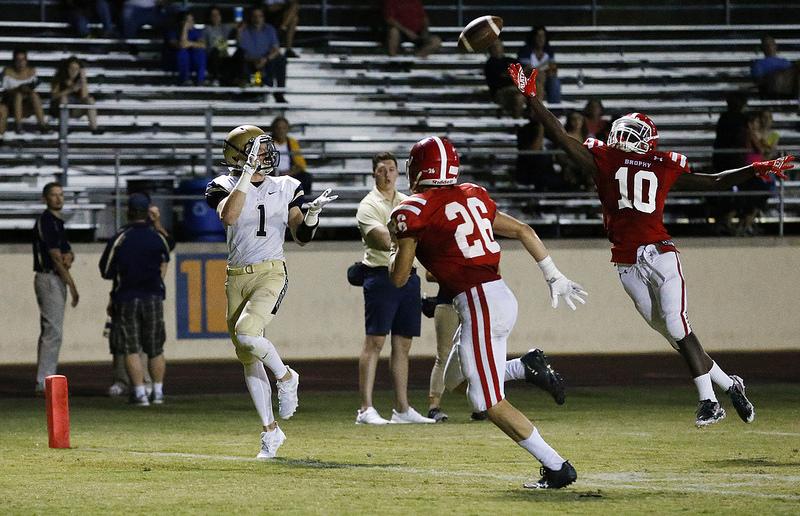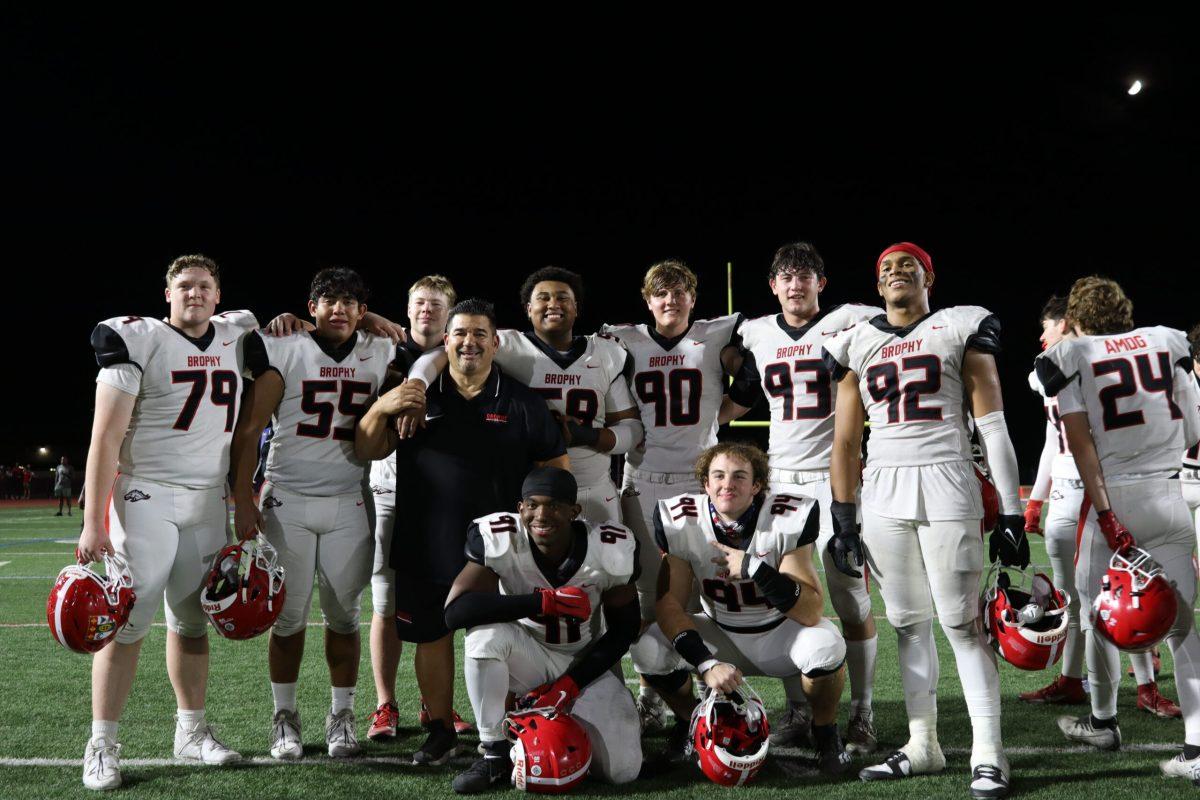Photo by Hunter Franklin ’19 | Brophy’s Denzel Burke (10) and Sully Shannon (26) attempt to intercept a pass intended for Desert Vista’s wide receiver Jake White (1) in a high school football game against Desert Vista Friday, Sept. 15, 2017, in Phoenix. Desert Vista defeated Brophy 17-14.
By Hayden Welty ’19 & Jack Davis ’19
THE ROUNDUP
The Issue: Brophy Athletic teams continue to employ gear from companies that fail to treat their customers ethically.
Our Stance: The Brophy athletic’s department needs to review the policy.
In light of the topics of the Summit on Human Dignity over the last few years, The Roundup staff has come to conclude that the current policy of purchasing from apparel brands like Nike, Under Armour and Adidas flies against the campus advocacy of the last two years.
The Brophy Athletics Department operates deals with brands to supply gear for their teams on the basis of the sport. For example, Brophy Soccer has worn Adidas, while Brophy Football switched from Under Armour to Nike this year.
Athletic Director Mr. Bill Woods said that he selects what teams wear what brands with lots of input from coaches and with the added consideration of financial circumstances.
Although Nike has approached the school before with an offer to provide all Brophy athletic teams with gear, Mr. Woods said, the school shut down the advances after activists raised concerns over workers’ rights in Nike factories.
Given the recent campus advocacy, such as Brophy Advocacy Club’s dialogue with the Varsity Shop over the possibly unethical origins of store wear, to purchase from brands that treat workers fairly, the school should reconsider its current policy.
Perhaps athletic teams should purchase “alternative” gear not associated with the major brands (all of whom mistreat workers, to different degrees albeit, according to Mr. Woods).
Simply speaking, Brophy should not tell its students to advocate for workers’ rights by buying certain brands and then go out and directly purchase goods from companies whose abusive policies have led to thousands of workplace accidents and other more serious incidents––not to mention abuse, low pay and safety concerns.
One proponent of logoless wear is Mr. Jonathan Londono ’10, the Student Outreach and Advocacy Coordinator who has fought against worker rights infringements while attending Arizona State University.
“I just question the use of logos in general,” he said. “Obviously, we would pay more for uniforms if we weren’t going to promote the brand… we can replace that Nike symbol with a symbol that is more true to us as a Jesuit school.”
An elegant solution may be to just utilise logoless apparel or buy from a company that treats its workers well. At the very least the school should reexamine their policy in light of recent developments.
Otherwise, the school is living out a hypocrisy in a manner that sets the wrong example for students: social justice advocacy is great, as long as it does not affect us.
























